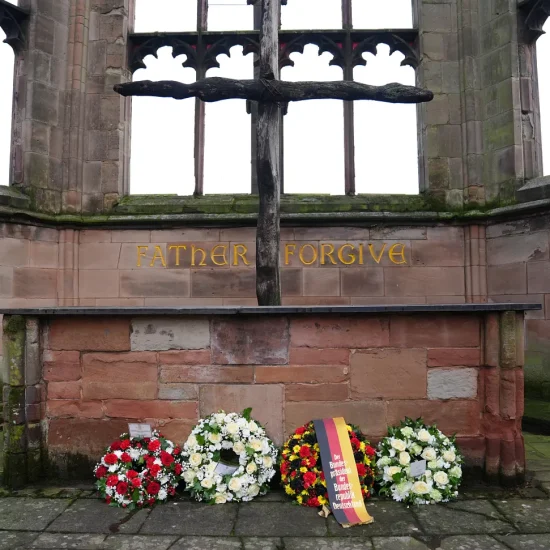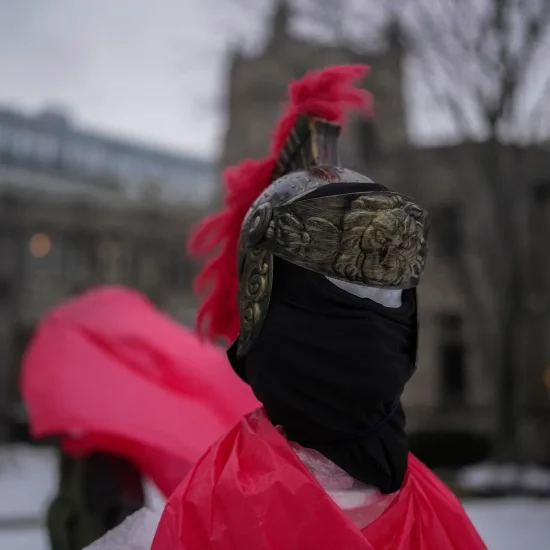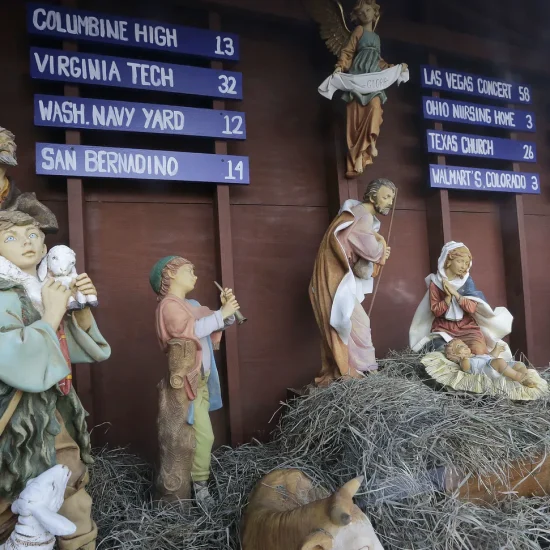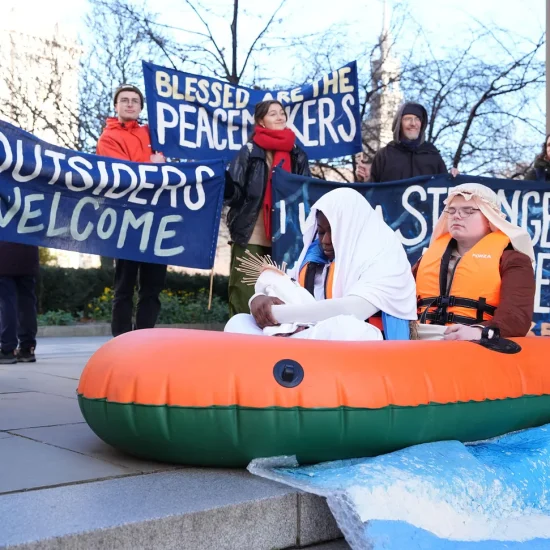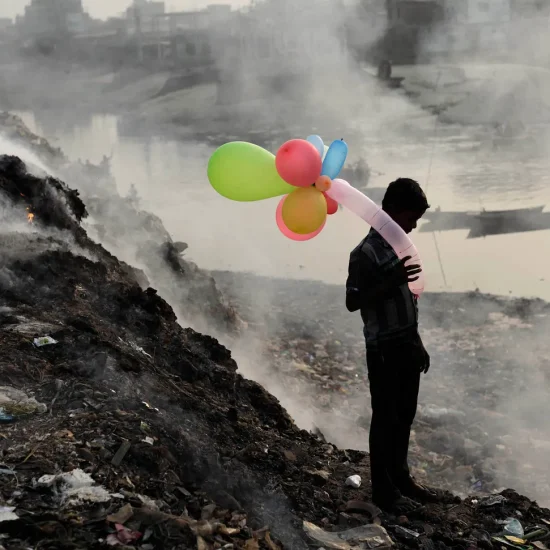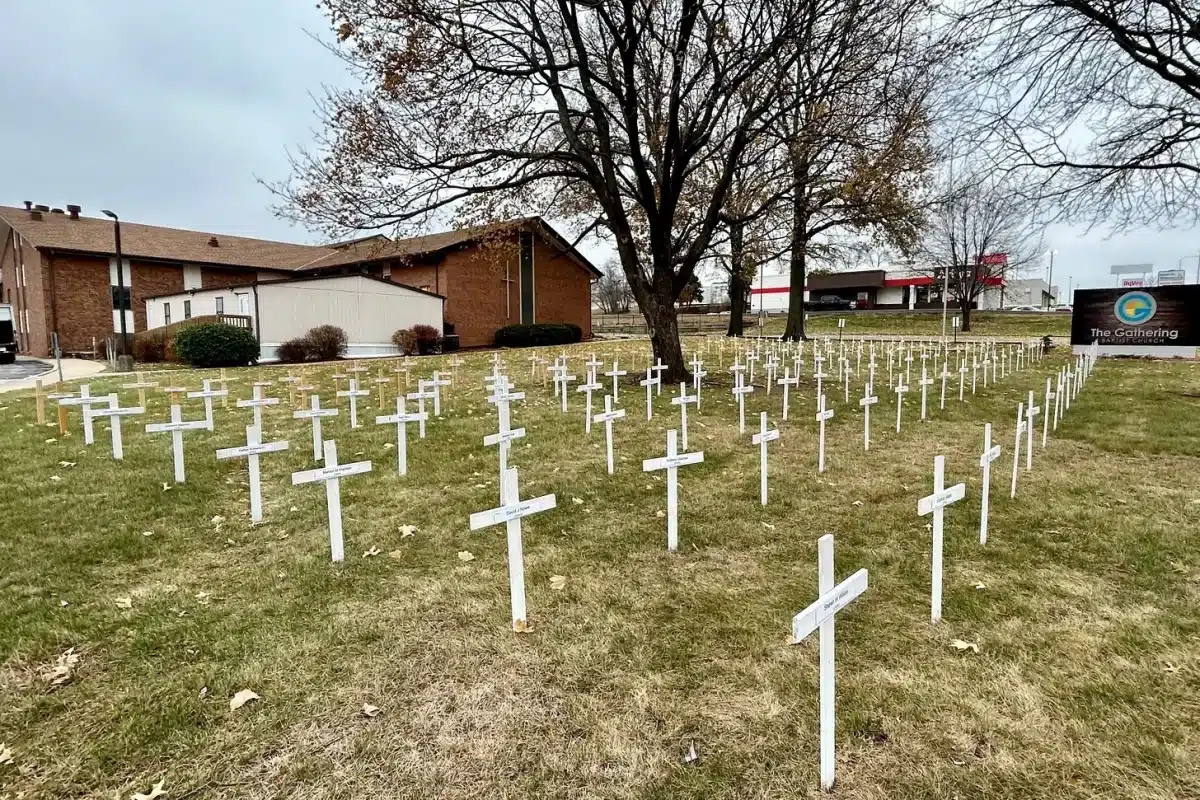
“Finally, all of you, have unity of spirit, sympathy, love for one another, a tender heart, and a humble mind. Do not repay evil for evil or abuse for abuse, but, on the contrary, repay with a blessing. It is for this that you were called — that you might inherit a blessing.” (1 Peter 3:8-9)
I live in Kansas City, Missouri — consistently one of the top cities in the United States for gun violence. One solution the state has tried to implement is forcing the city to pay 1 of every 4 tax dollars to one of the worst-ranked police departments in the country. The other main solution we have embraced is the death penalty.
It is an American tradition to believe in the myth of redemptive violence — the idea that we can get violence under control by using more violence. We are told that “the only thing that can stop a bad guy with a gun is a good guy with a gun.” Or, apparently, a state with a syringe full of dog euthanasia sedatives.
State-sanctioned killings, whether by police or the death penalty, do nothing to stop the underlying cycle of violence. Not only that, they facilitate its spread by inflicting heavy emotional tolls on people forced to encounter it, such as prison guards, medical professionals, lawyers, social workers, and chaplains. We should all be unsettled that this violence is woven into the fabric of our everyday lives.
Not everyone is sitting back and letting a familiar pattern continue to play out. Gathering Baptist Church in nearby Independence recently erected a poignant memorial comprised of white crosses scattered across its lawn as a tribute to the more than 160 lives lost to gun violence in Kansas City this year. Each cross includes the name of a victim and the date they lost their life. Everyone who drives past this location on a busy road is forced, even if only for a brief time, to contemplate the world we have allowed to exist.
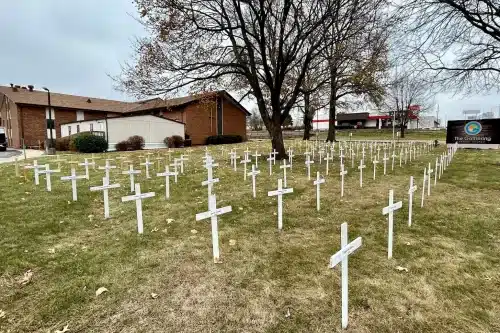
Crosses remembering gun violence victims at Gathering Baptist Church in Independence, Missouri. (Jeremy Fuzy/Word&Way)
We need more church communities like this one. Instead of letting an unjust status quo continue on, they are working together to disrupt it with a striking display of humanity.
Advent is ultimately the story of a child who threatened to completely derail the world he was born into. He did this not through the force of violence, but through something much more powerful: embodying love of neighbor.
Jeremy Fuzy is the voices editor at Word&Way.

NOTE: This is part of our Unsettling Advent devotionals running Nov. 27-Dec. 24. You can subscribe for free to receive them each morning in your inbox.

